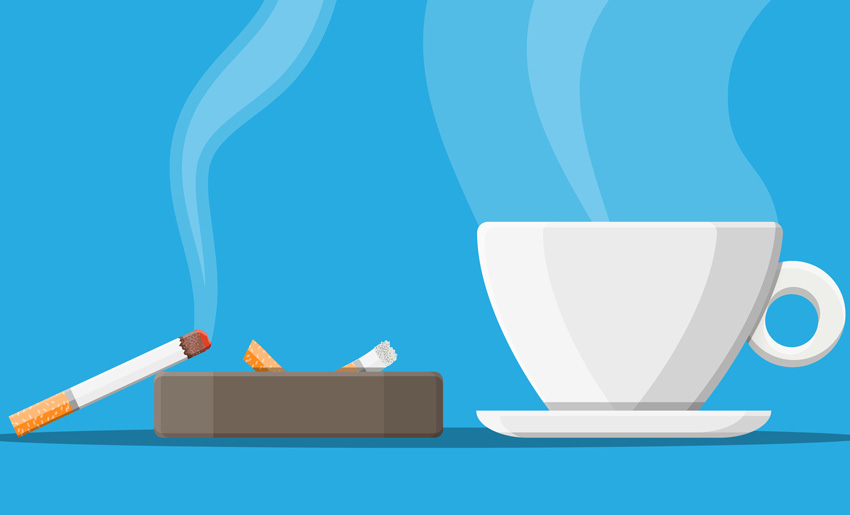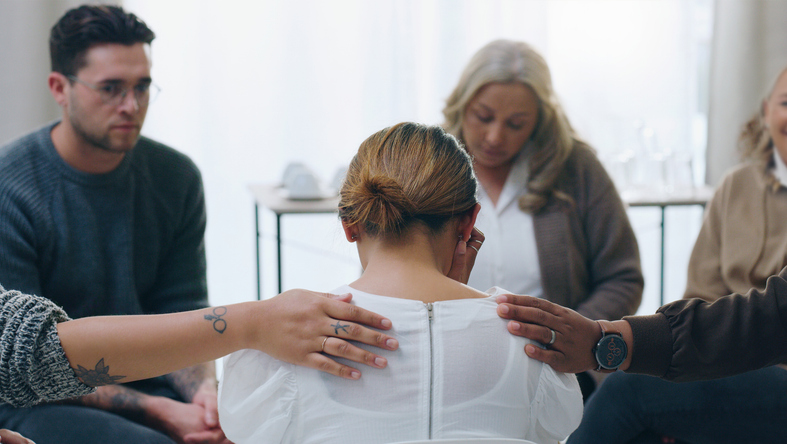Self-Care in Recovery
Let’s imagine that or a loved one have entered treatment with us at St. Gregory’s. You’ve detoxed, gotten sober, and learned a bunch of new strategies to permanently cut an addictive substance out of your life. You no longer need drugs to cope with life’s present stressors or past traumas. You’re finally substance-free and, one day, while in continued recovery, you sit down for your morning coffee and cigarette to contemplate your success.
Wait a minute…aren’t tobacco and caffeine addictive substances? Do they really calm people down?
In today’s post, we discuss the role that coffee and cigarettes have in recovery and in the process of making our lives more positive and fulfilling, while we learn self-care.
The Lesser of Many Evils
In rehabilitation environments, many doctors approve of their patients smoking while they gain sobriety. According to one Psychology Today writer, Dr. Jessica Grogan, a dependence on cigarettes isn’t viewed in the same way as alcohol or drug addictions. Smoking doesn’t tear apart families or inhibit users from working or completing responsibilities in the same way that other substance use might.
Some healthcare professionals see smoking as a relatively constructive outlet for coping with triggers that we may encounter while detoxing and transitioning into sobriety. At the same time, we are all aware of the carcinogenic danger and general health problems that smoking tobacco causes.
So, does smoking tobacco in recovery actually help clients deal with stress in a psychologically healthy way? Is it a part of self-care in recovery?
Healthy Habits
Strictly speaking, there is no healthy benefit to smoking. Although St. Gregory’s does not condone smoking as a healthy stress management strategy, we recognize how it can encourage some underlying good habits. We hope that with encouragement and guidance, you’ll be able to identify these habits and preserve them even as you quit the cigarette habit. Here are some of the healthy habits we’re talking about:
Frequent Breaks
People who smoke are more likely to take short breaks from whatever they’re doing throughout the day to have a cigarette. This shift in attention span can be really good for resetting concentration and being more productive overall during the course of a day. Try going for a walk out in nature instead of smoking when you feel the urge or notice anxiety building.
Meditative Breathing: Who Knew?!
Some research cited by Dr. Grogan implies that many smokers engage in an inhale-hold-release breath pattern that mimics meditative breathing techniques. That’s right: the breathing pattern involved in the classic cigarette ‘drag,’ when not including toxic smoke and vaporized carcinogens, is actually an awesome method for centering ourselves and calming anxiety. Similar breath patterns may be seen in yoga practice or meditation.
Getting Outside
With more knowledge and awareness of the health problems that cigarette smoke causes, fewer establishments allow smoking indoors or in enclosed areas. There are now thousands of designated outdoor areas for smokers across the country. The result? Many smokers, forced to be outside while they smoke, have more opportunity and incentive to stretch their legs and absorb a little vitamin D.
A Belief in Relaxation
An individual’s belief that smoking is a stress-relieving activity is a big part of why smoking has a calming effect. What if we shift that belief to another activity? Instead of believing that cigarettes calm us down, what if we developed that belief about breath, walking, yoga, or another healthy activity?
Social Connection
When away from home, many people smoke with a friend or in an area where other people are smoking, too. Smoking can be highly social. At St. Gregory’s, we like to create an environment of trust and support that facilitates spending time with others. Often, people underestimate the power of just being with people and the uplifting effect that can have. Instead of smoking with people, we can walk with them or grab a cup of coffee with them…wait, did you say coffee?
Coffee As a Gateway Drug?
Although coffee may be delicious, no one needs all that caffeine. Consumed by many people morning, afternoon, and night, coffee may or may not affect addiction recovery. Some research says it decreases risks of suicide and certain diseases. Other reports claim it may be a gateway drug that facilitates alcohol abuse and insomnia.
Overall, it’s probably okay to have a cup of coffee–much accredited research says so. The feeling of warmth that a good cup of coffee can create might be a welcome aspect of self-care. Of course, coffee, like any drug, can be overdone. Drink with intention and attention. To offset dependence and insomnia, try replacing afternoon or evening coffee with herbal tea.











